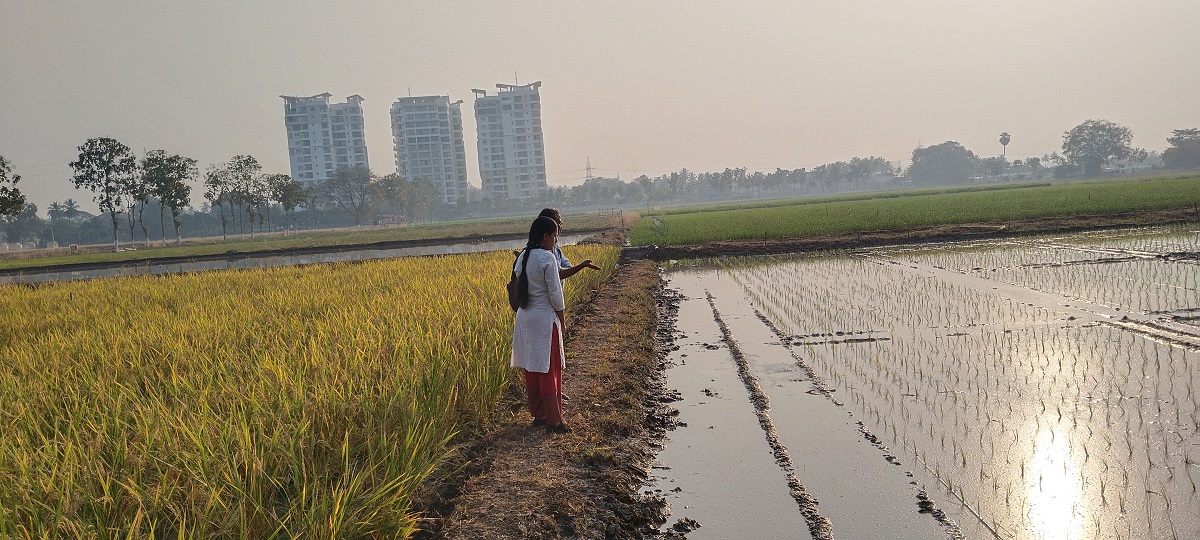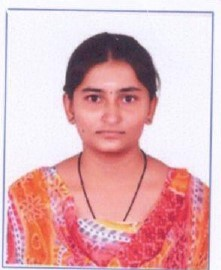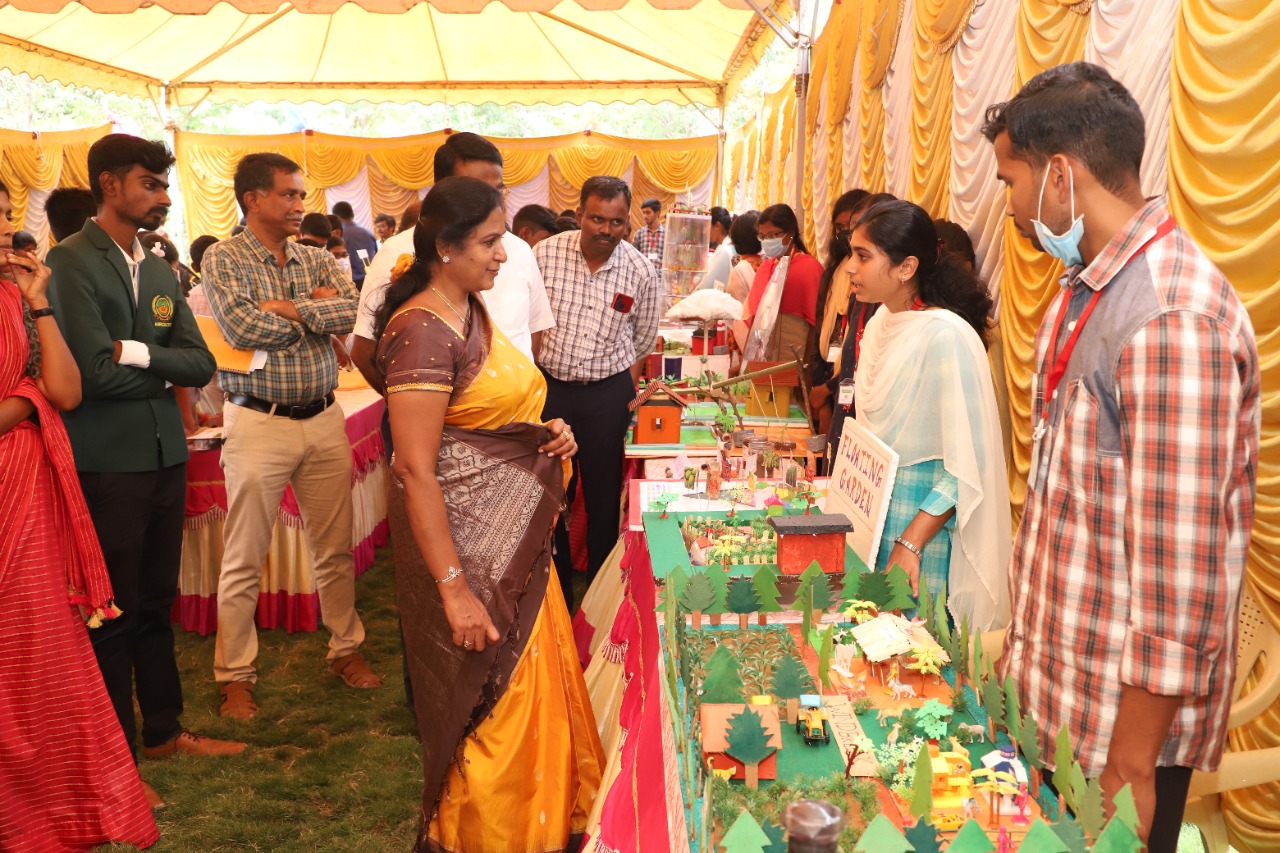The Tamil Nadu Agricultural University (TNAU) had its genesis from establishment of an Agricultural School at Saidapet, Madras, Tamil Nadu, as early as 1868 and it was later relocated at Coimbatore.
Get in touch
- info@tnau.ac.in
- 0422 6611200
- Monday to Friday: 9am to 5pm

M.Sc. (Ag.) in Agronomy
Prelude
Good agronomic management practices including better crop establishment, weed control, crop demand and need based nutrient and water management, cropping and farming system, effective recycling of farm wastes and optimum utilization of farm resources are imperative for maximizing and sustaining the productivity of cereals, millets, pulses, oilseeds, fibres, sugar, fodder and forage crops for meeting the food demand of the global population under changing climatic scenario. Severe competition from other sectors and industries for utility of natural and artificial resources poses several challenges for enhancing the cultivable area and food grain production, thus necessitating regional and location specific as well as seasonal and crop specific efficient agronomic management practices for maximizing the productivity as well as profitability of agricultural crop cultivation.
Why this programme?
- Acquiring comprehensive knowledge on modern concepts as well as traditional practices in crop management and food grain production
- Systematic understanding of crop growth and development for harnessing synergetic relationship with its growing environment and thus obtaining higher crop productivity
- Gaining knowledge on allied sciences of agricultural meteorology, soil science and agricultural chemistry, crop physiology and agricultural microbiology for employing integrated crop management practices
Study Programme
The Master’s degree programme in Agronomy has been designed following the ICAR guidelines. The course imparts:
- Students centric and interactive teaching environment for better learning and profound understanding of subjects
- Nurturing competitive subject knowledge and promoting students aptitude in the field of current agronomy
- Guiding research on frontier areas with current technologies for developing environment friendly and sustainable crop management practices
- Creating strategic and complimentary research initiatives in association with reputed International Institutes to attain global competence
- Supporting entrepreneurial and managerial skills of Agronomy students for venturing into agri start-ups cum agri-business and for developing scientific agricultural farms
- More details on the list of courses offered and research work experience to be gained is listed here
Colleges offering
The master programme in M.Sc. (Ag.) in Agronomy is offered at
- AC&RI, TNAU, Coimbatore campus
- AC&RI, Madurai campus
- AC&RI, Killikulam campus
- ADAC&RI, Tiruchirappalli campus
Application and Admission
Interested in taking part in the programme of Agronomy? Find out more about the specific Admission requirements and the application procedures in the TNAU website. All your doubts will be answered time-time by phone call / mail. The Admission Committee will check your eligibility and admissibility.
Future Career
To replace table content
Master’s in Agronomy course
Master Courses
After admission the students undergo a set of courses relevant to Agronomy, allied disciplines and agricultural statistics that help them understand the basics of Agronomy, field and laboratory experiments as per the Choice Based Credit System (CBCS) with a total credit load of 70 credits, of which 30 credits are exclusively earmarked for their Thesis Research.
Master’s thesis research
After completing the courses in the first year, the students start their thesis research. Each student is assigned to an experienced faculty, approved by the Dean of School of Post-Graduate Studies, who would guide the student on his/ her choice and interest of research topic.
Research internship
The students are exposed to several scientific events like National and International level seminar / symposia / conferences. Besides, students are also encouraged to have internship training at National (or) International Institutes located in India (or) abroad for a couple of months for acquiring knowledge on niche area and advanced level of science.
Student Experiences

I am Sakthivel. S, currently pursuing Master’s programme in the Department of Agronomy, Tamil Nadu Agricultural University, Coimbatore. Coming from an agricultural background, I feel privileged to do my Master’s in the Department of Agronomy, TNAU, Coimbatore. The M.Sc course curricula are well designed to expose the students in various state-of-the art technologies. We 2021 Batch had undergone 8 major, 2 minor, 2 supporting and 5 non credit courses during our course period (first year). Courses offered by the Department are well delivered keeping in mind the present scenario of agriculture. The courses offered help us to learn the recent approaches in Agronomy. Exposure visits to ICAR Institutions, TNAU Research Stations, Farmers fields and Watershed areas helped us in acquiring knowledge about various problems and constraints faced in crop production by farmers and the need of value addition of agricultural products. Department of Agronomy with its strong teaching faculty and with a wide Course Curricula trains Master’s students to become good Agronomists and also help them to shine in their career.
SAKTHIVEL. S
I – M. Sc. (Ag.) Agronomy – 2021 Batch
Department of Agronomy

I am very proud for choosing Agronomy as a discipline for my Post Graduation. From the courses undergone, I gained knowledge on improving the quality and quantity of crops produced through improved crop production technologies and it connects me to technology with agriculture. It helped to clear the Agricultural Officer exam in TNPSC successfully and now I am working as an Agricultural Officer. For my career as an Extension officer this discipline of Agronomy is very helpful to guide the farmers through discussions on different cropping practices, protecting and managing the crops from extreme weather, environment friendly ideas and farm practices. It helps the scholars to get wide knowledge pertaining to multi various fields of agriculture so that they can easily crack any competitive exam and get placed in National and State level organizations. It also provides opportunity to the scholars in various fields like Agricultural Research and Teaching, Consultancy, Agricultural Extension, Agribusiness and Farm Management.
Kanchana. T
Agricultural Officer,
Mobile Soil Testing Laboratory, Karur.

